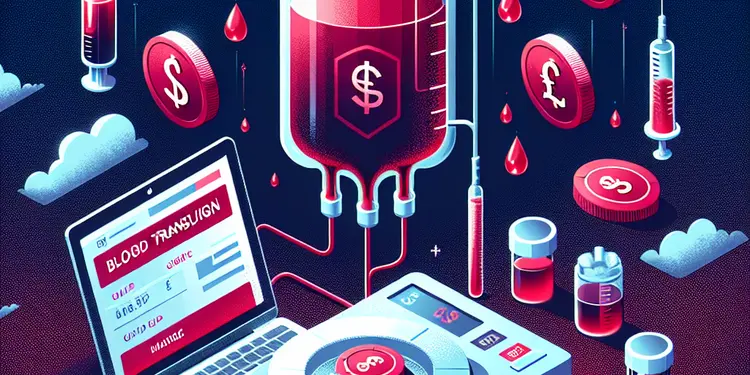
Find Help
More Items From Ergsy search
-
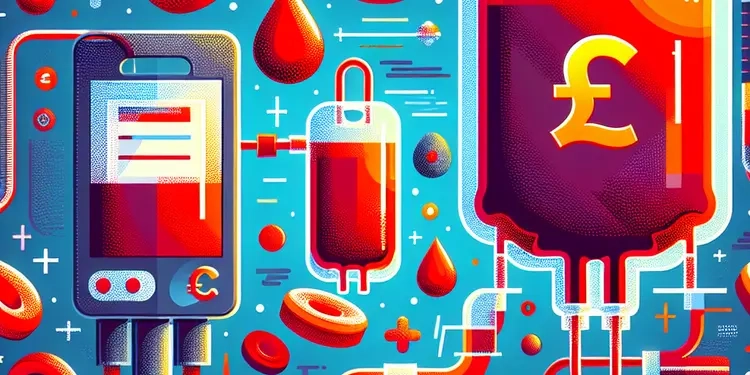
What is a blood transfusion?
Relevance: 100%
-

Blood Product Transfusions
Relevance: 100%
-

Blood Transfusion
Relevance: 97%
-

Are there risks associated with blood transfusions?
Relevance: 95%
-
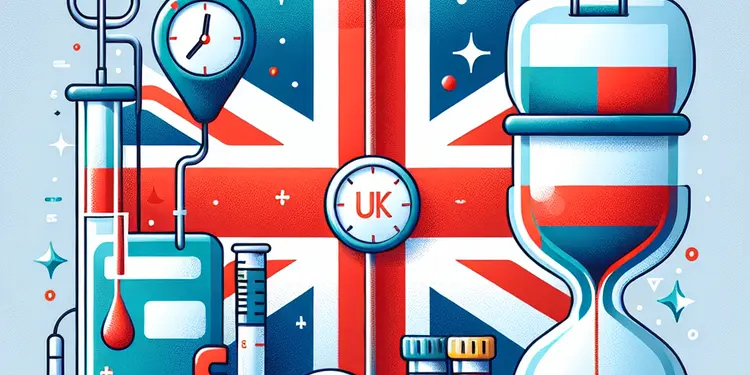
Is there an age limit for receiving blood transfusions?
Relevance: 92%
-
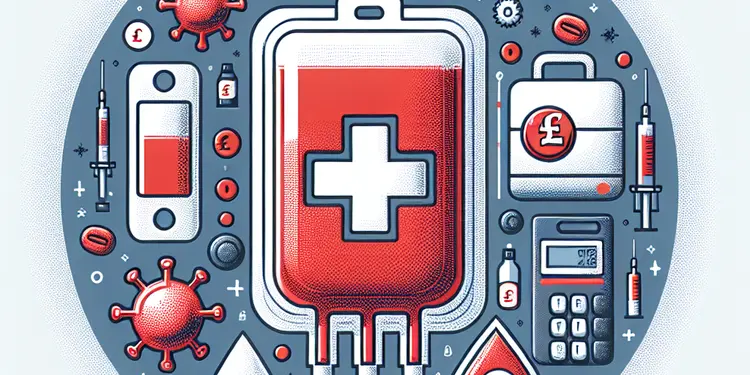
Is HTLV a risk in blood transfusions?
Relevance: 92%
-
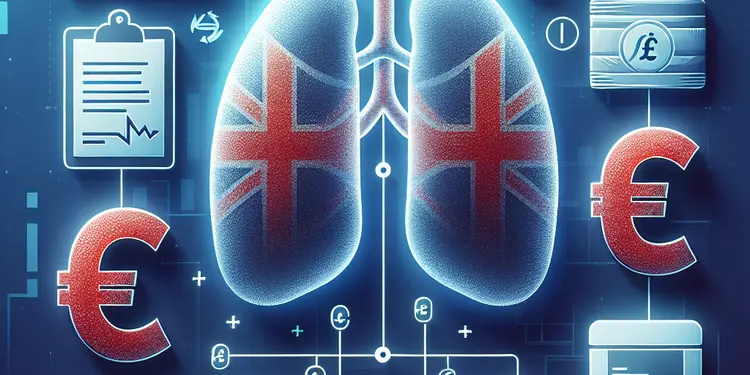
Is Hepatitis B a risk in blood transfusions?
Relevance: 91%
-
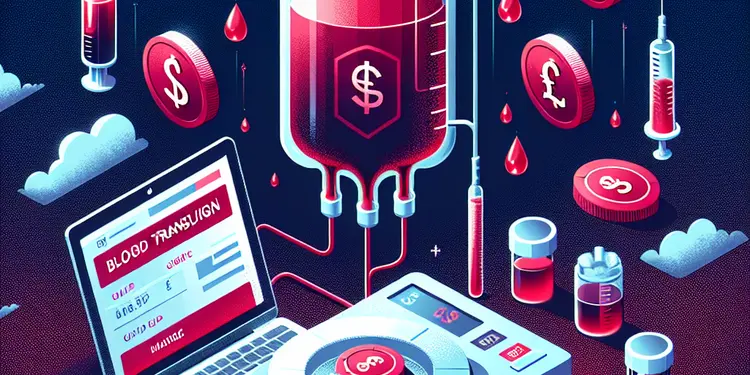
Why might someone need a blood transfusion?
Relevance: 89%
-
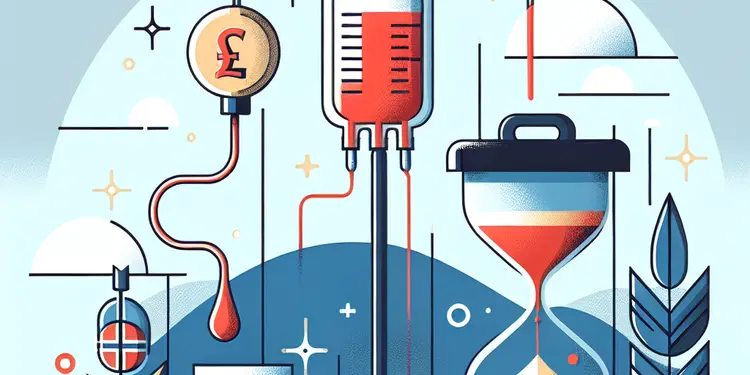
How long does a blood transfusion take?
Relevance: 88%
-

What diseases can be spread by blood transfusions?
Relevance: 88%
-
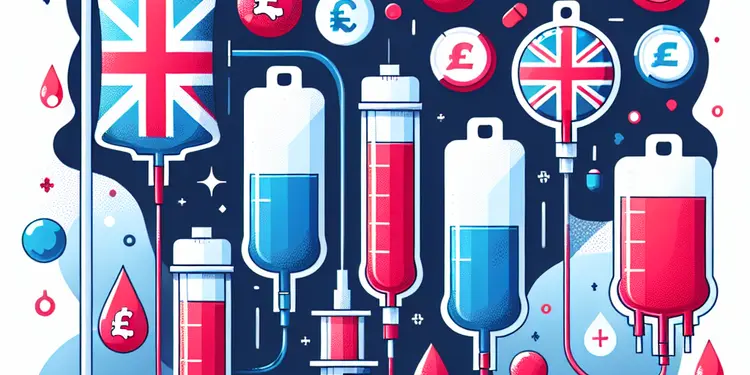
What types of blood products can be transfused?
Relevance: 88%
-
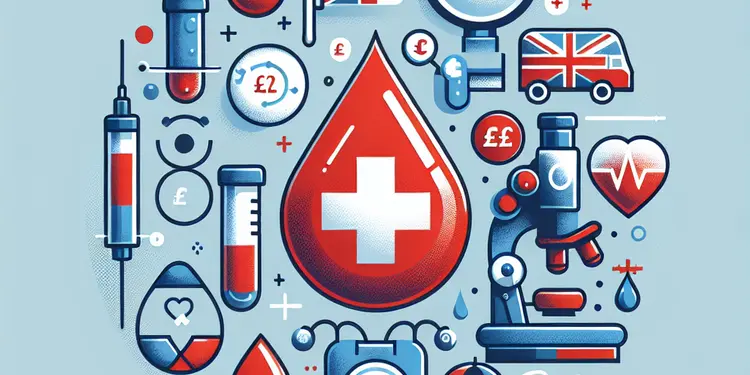
How do healthcare providers match blood for transfusions?
Relevance: 87%
-

Is Chagas disease a concern with blood transfusions?
Relevance: 87%
-
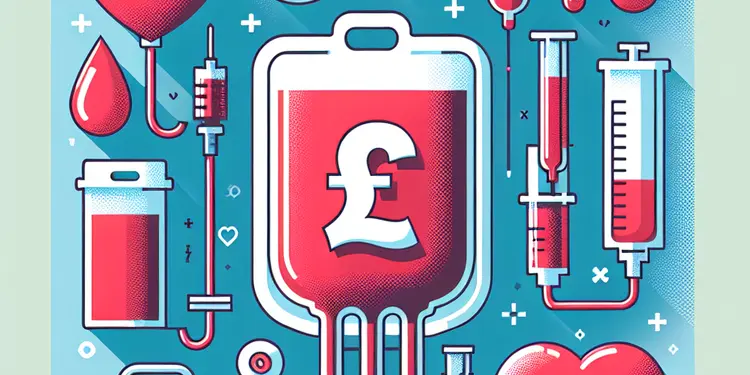
Can HIV be transmitted through blood transfusions?
Relevance: 87%
-
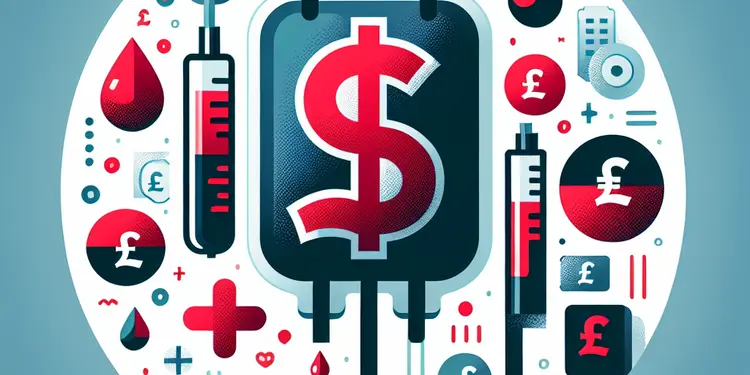
What are some common reasons blood transfusions are needed?
Relevance: 86%
-
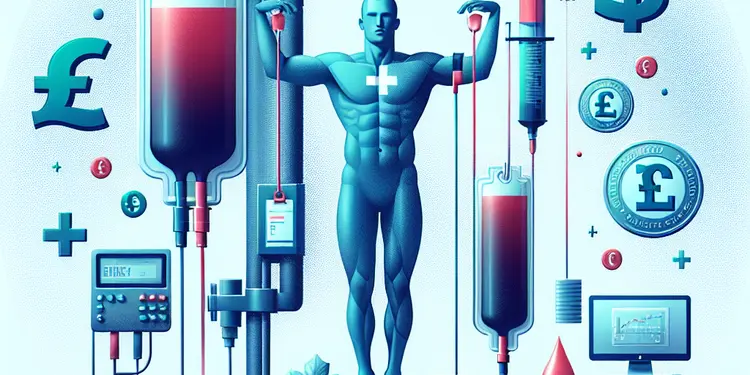
Can someone have a reaction to a mismatched blood transfusion?
Relevance: 86%
-
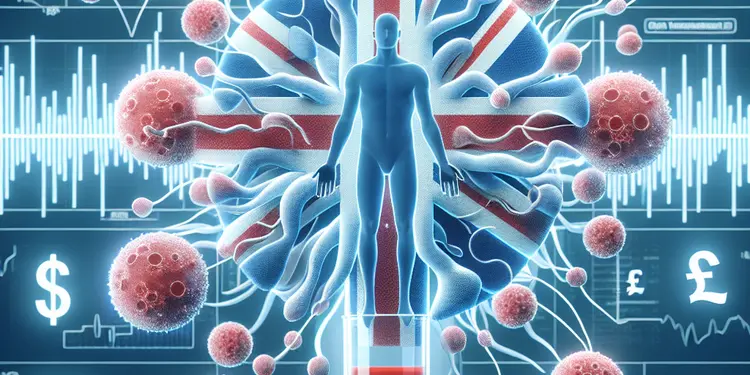
Can syphilis be transmitted via blood transfusion?
Relevance: 86%
-

Is Zika virus screened for in blood transfusions?
Relevance: 85%
-
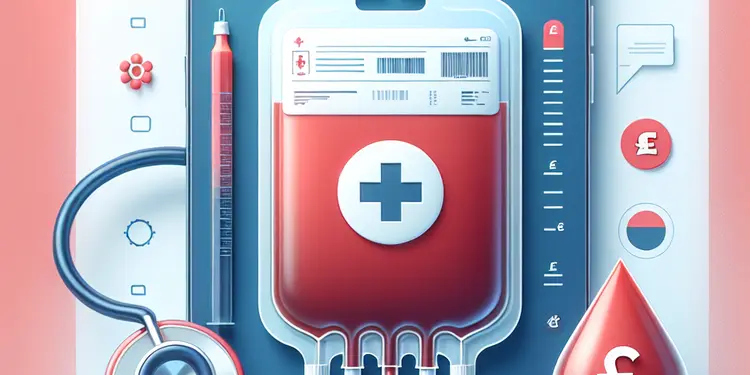
Can bacterial infections be transmitted through blood transfusion?
Relevance: 84%
-
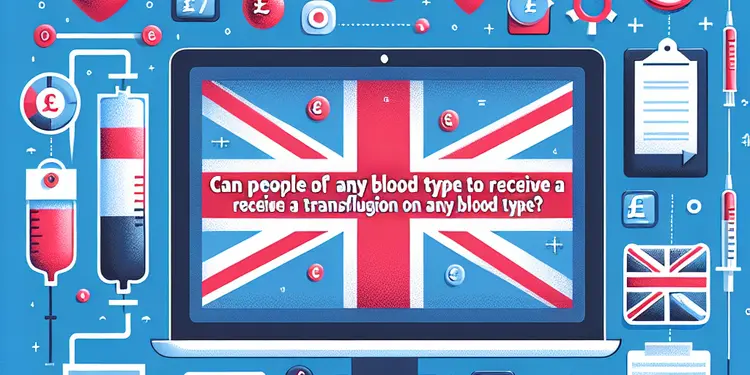
Can people of any blood type receive a transfusion of any blood type?
Relevance: 84%
-

Are there any parasites that can be transmitted through blood transfusions?
Relevance: 84%
-
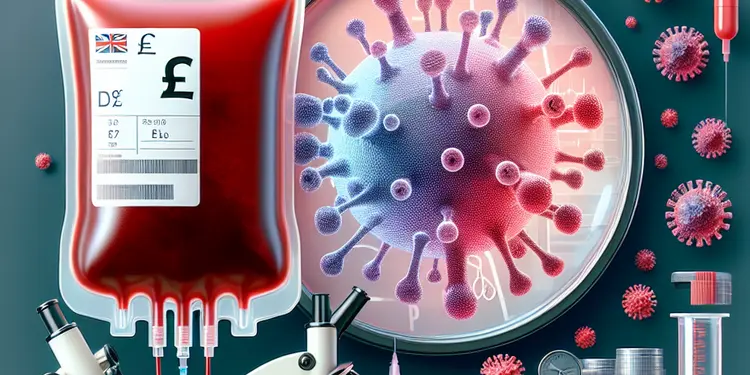
What is the most common disease transmitted by blood transfusion?
Relevance: 84%
-

Is malaria still a concern for blood transfusion safety?
Relevance: 84%
-
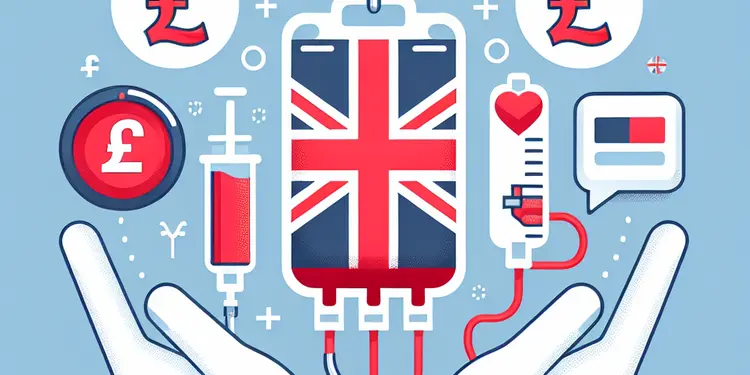
Can COVID-19 be transmitted through blood transfusions?
Relevance: 84%
-
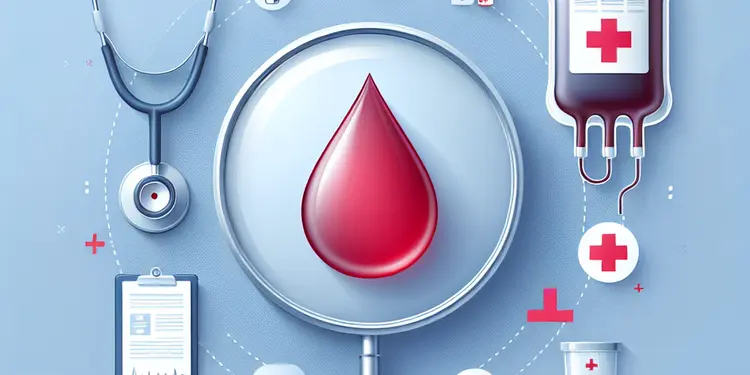
How do doctors determine how much blood is needed for a transfusion?
Relevance: 83%
-
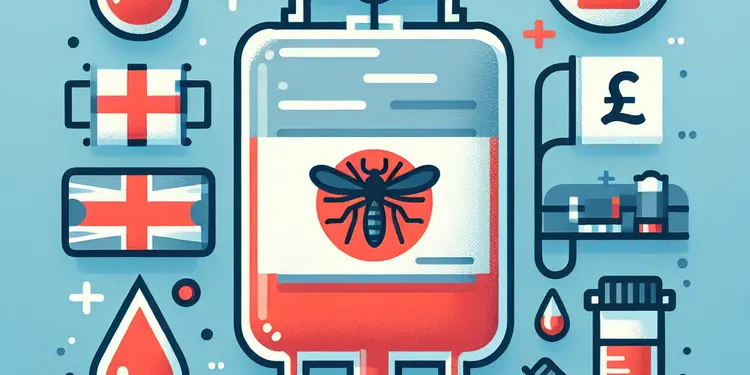
Can Dengue fever be transmitted through blood transfusions?
Relevance: 83%
-
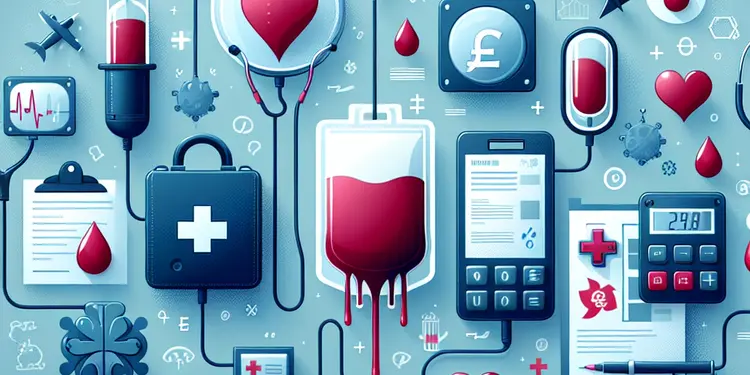
Can certain medical conditions prevent receiving blood transfusions?
Relevance: 83%
-
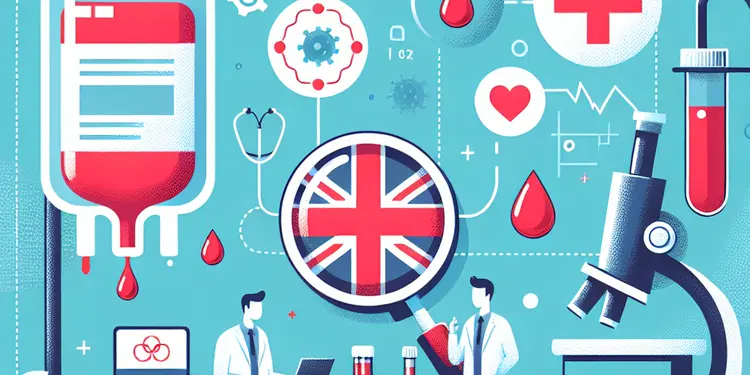
Can you get any prion diseases from blood transfusion?
Relevance: 77%
-
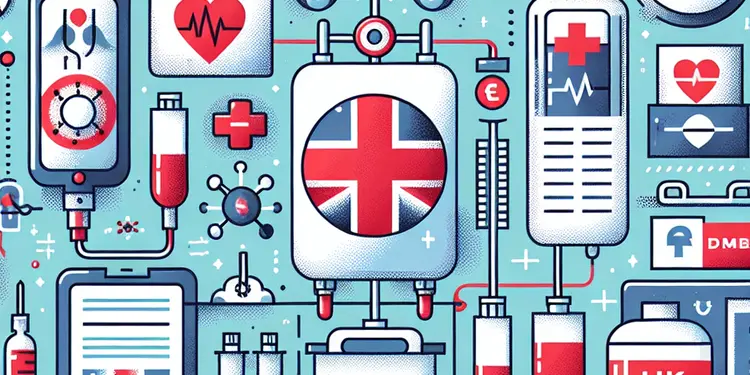
What measures are taken to prevent disease transmission in blood transfusions?
Relevance: 75%
-
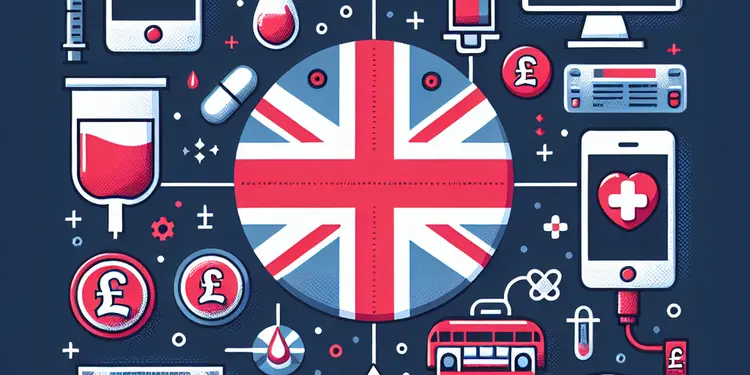
Is blood used for transfusions safe?
Relevance: 71%
-

What is plasma, and why might it be transfused?
Relevance: 69%
-
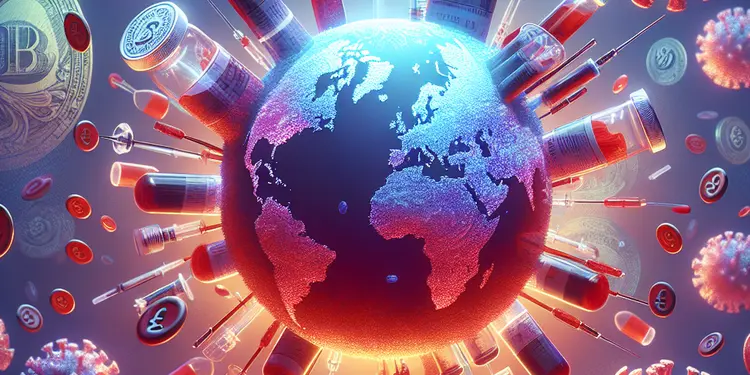
Can cytomegalovirus (CMV) be spread through transfusions?
Relevance: 67%
-

Are there global differences in screening for blood transfusions?
Relevance: 66%
-
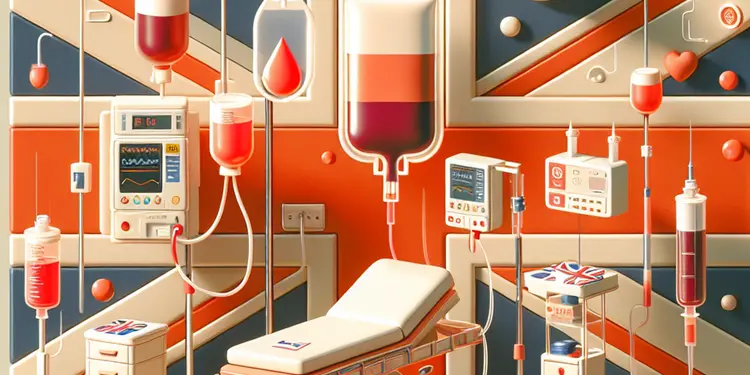
What should a patient expect after a blood transfusion?
Relevance: 61%
-
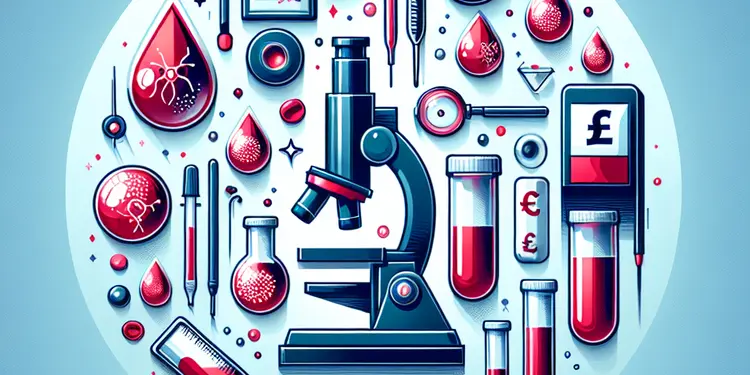
How is blood screened to prevent disease transmission?
Relevance: 60%
-
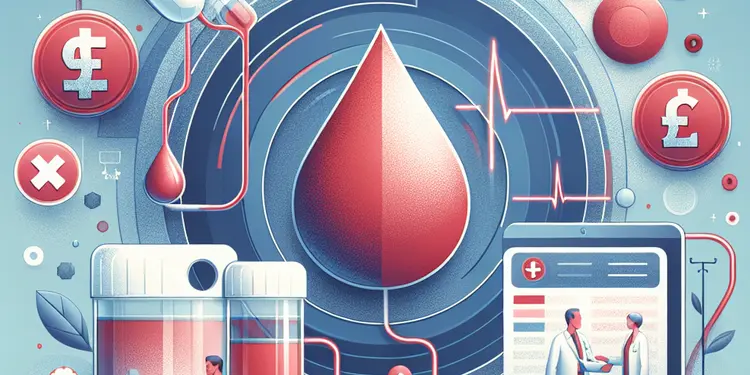
What kind of follow-up care is needed after a blood transfusion?
Relevance: 59%
-

What other viruses are tested for in blood donations?
Relevance: 53%
-

Are new emerging pathogens a risk for blood safety?
Relevance: 53%
-
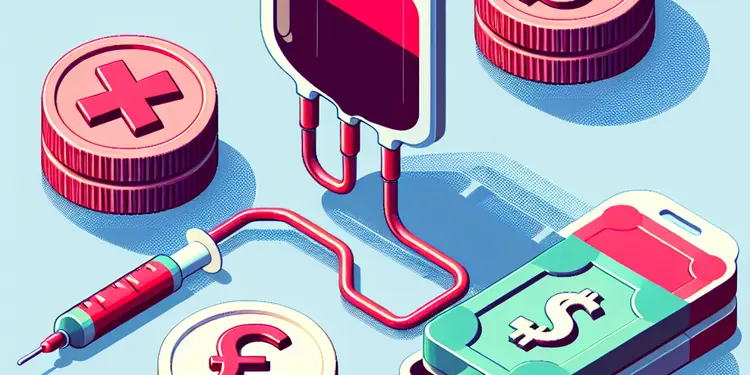
How is a blood transfusion performed?
Relevance: 48%
-

Can you donate blood specifically for a friend or family member?
Relevance: 42%
Introduction to Blood Transfusions
A blood transfusion is a medical procedure where donated blood or components of it are introduced into a patient's bloodstream. It's a critical process that can save lives in various medical circumstances. For those facing significant physical complications, blood transfusions can be essential in supporting recovery and maintaining health.
Reasons for Blood Transfusions
A person may require a blood transfusion for several reasons, often related to the replacement of blood lost or addressing deficiencies in blood components. Understanding the common causes helps highlight the importance of this medical treatment.
Blood Loss from Surgery or Injury
One of the most common reasons for a blood transfusion is significant blood loss, which may occur during major surgeries or due to traumatic injuries. In such cases, immediate restoration of blood volume is crucial to maintain circulation and oxygen delivery throughout the body, which is vital for survival and recovery.
Chronic Illnesses and Conditions
Individuals with chronic illnesses, such as kidney disease, severe anemia, and certain cancers, often require blood transfusions. These medical conditions can lead to inadequate production of healthy blood cells, necessitating transfusions to replenish red blood cells and improve the quality of blood.
Anemia Management
Anemia, characterized by a deficiency of red blood cells or hemoglobin, can be addressed through blood transfusions. For individuals with severe anemia, often due to chronic diseases or nutritional deficiencies, transfusions help restore adequate blood levels and improve oxygen transport in the body.
Cancer Treatment
Cancer patients might need blood transfusions at various treatment stages. Chemotherapy can reduce blood cell counts, leading to anemia, while certain cancers affect the bone marrow's ability to produce blood cells. Regular transfusions can help correlate these issues, ensuring patients maintain necessary blood cell levels.
Complications During Birth
Women may experience excessive blood loss during childbirth, known as postpartum hemorrhage. In such scenarios, blood transfusions are vital to replace lost blood, reduce the risk of shock, and aid in the recovery process. It ensures the mother remains stable and reduces the potential for further complications.
Thalassemia and Sickle Cell Crisis
Genetic blood disorders such as thalassemia and sickle cell disease may require regular blood transfusions. These conditions can cause chronic anemia and severe pain episodes, where transfusions are critical in managing symptoms and preventing complications.
Conclusion
Blood transfusions are a life-saving procedure across various medical situations, from acute trauma to chronic diseases. Understanding the diverse reasons and scenarii where transfusions become necessary underlines the critical role they play in modern healthcare. This also emphasizes the importance of blood donation, as the availability of compatible blood is integral to the successful execution of these transfusions.
Introduction to Blood Transfusions
A blood transfusion is a medical procedure. It is when someone gives their blood to help another person. This blood goes into the patient's body. Blood transfusions can save lives. They help people get better when they are very sick or hurt.
Reasons for Blood Transfusions
People need blood transfusions for different reasons. It can be because they have lost a lot of blood. It can also help if they don’t have enough healthy blood parts. Knowing why helps us see why transfusions are so important.
Blood Loss from Surgery or Injury
People can lose a lot of blood during big surgeries or if they get badly hurt. This is one of the main reasons for a blood transfusion. The new blood helps keep important body functions going. It helps the person stay alive and start getting better.
Chronic Illnesses and Conditions
People with long-term illnesses, like kidney disease or certain cancers, may need blood transfusions. These illnesses can stop the body from making enough healthy blood cells. Transfusions give them the red blood cells they need to feel better.
Anemia Management
Anemia means the body doesn’t have enough red blood cells. Blood transfusions help people with severe anemia. This can happen because of other long-term diseases or not getting the right nutrients. Transfusions help carry oxygen to the body's cells.
Cancer Treatment
Cancer patients often need blood transfusions. Treatments like chemotherapy can lower blood cell counts. Some cancers stop the body from making enough blood cells. Transfusions help keep the blood cell levels right, which is important for the patient’s health.
Complications During Birth
Sometimes, women lose a lot of blood during childbirth. This is called postpartum hemorrhage. Blood transfusions help give mothers the blood they lost. This keeps them safe and helps them recover.
Thalassemia and Sickle Cell Crisis
Thalassemia and sickle cell disease are blood disorders. People with these conditions need regular blood transfusions. Transfusions help manage pain and prevent other health problems.
Conclusion
Blood transfusions save lives in many situations. They help in emergencies and with long-term diseases. This shows how important it is to donate blood, as it helps ensure there is enough for those who need it.
Frequently Asked Questions
What is a blood transfusion?
A blood transfusion is a medical procedure where a patient receives blood or blood components intravenously from a donor.
Why might someone need a blood transfusion due to surgery?
During surgery, there may be significant blood loss, and a transfusion is needed to replace lost blood and maintain adequate circulation.
Can anemia be treated with a blood transfusion?
Yes, severe anemia, which is a deficiency of red blood cells, may require a blood transfusion to increase the red blood cell count and improve oxygen delivery to tissues.
How do traumatic injuries lead to a need for a blood transfusion?
Traumatic injuries, such as those from accidents, can cause severe bleeding, necessitating a transfusion to replace lost blood.
Why might cancer patients need blood transfusions?
Cancer patients might need transfusions due to the disease itself or as a side effect of treatments like chemotherapy, which can deplete blood cells.
When might a bleeding disorder warrant a blood transfusion?
Bleeding disorders such as hemophilia or von Willebrand disease can cause excessive bleeding, requiring transfusions of clotting factors or blood.
What role does a blood transfusion play in childbirth complications?
In cases of excessive bleeding during or after childbirth, a transfusion can be necessary to replace lost blood and stabilize the mother's condition.
Why do patients with sickle cell disease sometimes need blood transfusions?
Patients with sickle cell disease may receive transfusions to treat or prevent complications like severe anemia or stroke.
Is a blood transfusion needed for severe burns?
Yes, severe burns can lead to blood loss and anemia; transfusions are sometimes required to replace blood volume and support healing.
Can gastrointestinal bleeding necessitate a blood transfusion?
Yes, significant bleeding from ulcers or other gastrointestinal conditions can lead to a need for transfusions to replace lost blood.
Why might a patient with kidney disease need a blood transfusion?
Kidney disease can cause anemia due to reduced erythropoietin production, and transfusions may be needed if the condition becomes severe.
When is a blood transfusion necessary for thrombocytopenia?
Thrombocytopenia, or low platelet count, can lead to excessive bleeding and may require transfusions of platelets or blood.
Do autoimmune disorders lead to a need for blood transfusions?
Certain autoimmune disorders can destroy blood cells or impair their production, sometimes necessitating blood transfusions.
How can liver disease lead to blood transfusions?
Liver disease can impact blood clotting and cause bleeding problems, which can be managed with transfusions if severe.
Are transfusions used for aplastic anemia?
Yes, aplastic anemia results in the body not producing enough blood cells, and transfusions are often needed to maintain healthy levels.
Can a blood transfusion be necessary for those with nutritional deficiencies?
Severe cases of nutritional deficiencies, like those causing anemia, might require a transfusion although usually rare and treated with supplements.
Why would a blood transfusion be used in bone marrow failure conditions?
Conditions like aplastic anemia where the bone marrow fails to produce adequate blood cells can require regular transfusions to maintain blood levels.
Can chronic diseases necessitate blood transfusions?
Chronic diseases such as inflammatory disorders can cause anemia of chronic disease, which might require transfusion in severe cases.
Is a blood transfusion a treatment option for genetic conditions?
Yes, genetic conditions like thalassemia can result in chronic anemia, making regular blood transfusions necessary for management.
How does a blood transfusion help in cases of septicemia?
In septicemia, blood transfusions can help by supporting circulation and oxygen delivery if there is significant blood loss or anemia.
What is a blood transfusion?
A blood transfusion is when you get blood from someone else. This blood goes into your body. It helps if you are sick or have lost blood.
Tools to help you understand:
- Use a picture of the body and blood.
- Ask someone to explain more to you.
A blood transfusion is when a person gets blood through a tiny tube into their body from someone else. This tube is usually put into a vein. People who give their blood are called donors.
Why do people need more blood after an operation?
During an operation, people can lose blood. When they lose too much, they might need new blood. This helps their body feel better and get strong again.
Tools that can help:
- Use pictures or diagrams to show how the body uses blood.
- Ask a doctor or nurse to explain using simple words.
When a person has an operation, they might lose a lot of blood. Blood loss can be dangerous, so doctors need to give the person extra blood to help keep them safe and healthy.
Can you help anemia with a blood transfusion?
Anemia means you don't have enough healthy blood in your body.
A blood transfusion is when doctors give you blood from another person.
This can help you feel better if you have anemia.
If you're not sure, ask a doctor for advice. They can help you.
Using pictures and simple charts might help you understand better.
Yes, if you have very low red blood cells, called severe anemia, you might need a blood transfusion. This will help you have more red blood cells and get more oxygen to your body.
Why do bad injuries make someone need new blood?
When you get hurt badly, like in an accident, you might bleed a lot. If you lose too much blood, doctors can give you new blood. This is called a transfusion. It helps you get better.
Why do people with cancer need new blood?
People with cancer sometimes need new blood to help them feel better. Cancer or its treatment can make their blood weak. Getting new blood can help them feel strong again.
If you’re helping someone with cancer, you can:
- Help them understand the doctor’s advice
- Read together about blood and how it helps the body
- Talk to a nurse or doctor if you have questions
Cancer patients sometimes need extra blood. This can happen because of the cancer or because of the treatment, like medicine. The treatment can use up blood cells.
When do people need a blood transfusion because of bleeding problems?
Some people have bleeding problems. This means their blood does not clot well.
Sometimes, they may need a blood transfusion. This is when they get blood from another person.
A blood transfusion helps if they lose a lot of blood or do not have enough healthy blood.
If you need help understanding this, you can ask someone you trust to explain it to you. You can also use apps or devices that read text out loud or show pictures to help you understand.
Some people have problems that make them bleed more than normal. These problems are called bleeding disorders. Two common ones are hemophilia and von Willebrand disease.
If you have these, you might need medicine to help your blood clot, or you might need extra blood.
How does a blood transfusion help with childbirth problems?
Doctors sometimes need to give mothers more blood when they have problems during childbirth. This is called a blood transfusion.
The extra blood helps the mother feel better and stay healthy.
If you want to learn more, you can ask a doctor or nurse to explain it further.
If a mom loses too much blood when having a baby or after, she might need something called a transfusion. This helps by putting more blood back in her body to make her feel better and safe.
Why do people with sickle cell disease need blood transfusions?
People with sickle cell disease have red blood cells that don't work properly. These cells are sickle-shaped, like a banana, and can get stuck in small blood vessels.
Blood transfusions give the person new, healthy blood. This can help them feel better and stop problems caused by the sickle cells.
Using pictures or simple diagrams can help explain how sickle cell disease affects the body. A caregiver or helper can read along with you and answer questions.
People with sickle cell disease sometimes get blood transfusions. These transfusions help when they have problems like very low blood (anemia) or a risk of having a stroke.
For more help, you can use tools like audiobooks, pictures, or ask someone to read with you.
Do you need new blood if you have bad burns?
When someone has bad burns, doctors might give them new blood. This is called a blood transfusion. It helps the body heal.
If you have questions, you can ask a doctor or nurse. They are there to help.
You can use pictures or ask someone to help explain things better.
Yes, bad burns can cause blood loss. This might mean you don't have enough red blood cells, which is called anemia. You might need to get more blood from a hospital to help you feel better and heal.
Can stomach or gut bleeding mean you need new blood?
Yes, if someone has a really bad bleed from an ulcer or stomach problem, they might need new blood from a transfusion to replace what they lost.
Why would someone with kidney problems need more blood?
Kidney problems can make you feel tired and weak. This is because your kidneys might not make enough of something called erythropoietin, which helps your body make red blood cells. If you don’t have enough red blood cells, you might need something called a blood transfusion to help you feel better.
When do you need a blood transfusion for low platelets?
Sometimes, your blood needs help because it does not have enough platelets. Platelets are very small parts of your blood that help stop bleeding. A blood transfusion can help add more platelets to your blood.
Your doctor might say you need a blood transfusion if:
- You have very low platelets.
- You have bleeding that does not stop.
- You will have an operation soon.
If you need help understanding more about this, you can:
- Ask your doctor to explain it.
- Use pictures or drawings.
- Talk about it with a friend or family member.
Thrombocytopenia means having fewer platelets in the blood than usual. Platelets help stop bleeding.
If someone has a low platelet count, they might bleed too much. Sometimes, they might need to get more platelets or blood from a doctor.
Do people with autoimmune disorders need blood transfusions?
Autoimmune disorders are health problems where the body attacks itself by mistake.
Sometimes, these disorders can cause issues with blood.
This could mean that a person might need more blood, called a blood transfusion.
If you have an autoimmune disorder, it's important to talk to a doctor about your blood health.
Doctors and nurses can help if a blood transfusion is needed.
Using picture aids and asking questions can help you understand more about your health.
Some diseases can make the body hurt its own blood cells. This can stop new ones from being made. Sometimes, people need new blood put into their body to feel better.
Why might someone with liver problems need new blood?
The liver is an important part of the body. It helps to clean the blood. When the liver is sick, it might not work well. This can make someone feel very tired or weak.
Liver problems may cause bleeding. This is because the liver helps the blood to clot or stop bleeding. If the liver is not working, it can be hard for the body to stop bleeding.
Sometimes, people with liver problems might need new blood. This is called a blood transfusion. It helps to give them healthy blood that the liver might not be making.
Helpful Tips:
- Ask a doctor or nurse if you have questions.
- Use pictures or videos to learn more about the liver.
- Talk to someone you trust if you are feeling worried.
Your liver helps your blood to clot, which means it helps stop bleeding if you get a cut. If you have liver disease, your blood might not clot properly. This can cause bleeding. Doctors can help with this. They might give you a blood transfusion to help stop the bleeding. A transfusion means you get healthy blood from another person.
Do people with aplastic anemia get blood transfusions?
Aplastic anemia is a sickness. It makes your body not make enough blood cells. You might need blood transfusions to stay healthy.
Do some people need extra blood if they don't get enough vitamins and minerals?
Sometimes, when people don’t get enough good stuff from their food, they can get very sick. This can make their blood weak, which is called anemia. Most of the time, doctors can help them get better with special vitamins. But in very bad cases, they might need new blood from another person. This doesn’t happen a lot.
Why do people get blood transfusions when bone marrow is not working?
Sometimes, the bone marrow does not make enough blood. This can make a person very tired and weak.
A blood transfusion gives the body extra blood. This helps the person feel better and have more energy.
Tools that can help understand more:
- Ask a doctor to explain it simply.
- Use pictures to show how blood transfusions work.
- Watch videos that explain blood transfusions.
Sometimes, the body can't make enough blood cells. This can happen with something called aplastic anemia. People with this condition might need to get blood from someone else to keep healthy. This is called a blood transfusion.
Do long-term illnesses mean you need blood transfusions?
If you are sick for a long time, you might need extra blood.
A doctor can give you blood from someone else to help you feel better.
If this information is hard to understand, you can:
- Ask someone you trust to explain it to you.
- Use pictures or drawings to help understand.
- Talk to your doctor or nurse for more information.
Sometimes people get diseases that last a long time. These can make them feel very tired because their blood is not as strong. This is called anemia. When it gets really bad, they might need more blood from another person to help them feel better.
Can a blood transfusion help with genetic illnesses?
A blood transfusion is when you get new blood from someone else. This can help people who are sick. But, it might not fix problems you are born with, called genetic illnesses.
If you want to learn more, you can talk to a doctor. They can explain it clearly.
Using picture charts or a friend who reads well can also help you understand better.
Yes, some illnesses from our genes, like thalassemia, can cause long-lasting low blood. This means a person might need to get blood from a hospital often to feel better.
How does a blood transfusion help when someone has septicemia?
Septicemia is when you have a serious infection. It makes you very sick.
A blood transfusion gives you new, healthy blood. This can help you feel better.
If you have septicemia, your blood is not working right to fight germs.
Getting new blood helps your body get stronger to fight the infection.
Doctors give new blood through a tube in your arm.
Doctors and nurses check to make sure the new blood helps you feel better.
If reading is hard, use a computer or phone to read this out loud.
You can also ask someone you trust to explain it to you.
When someone has septicemia, giving them new blood can help. It makes sure their body gets enough oxygen and helps their blood flow better if they have lost a lot of blood or if they don't have enough healthy red blood cells.
Useful Links
This website offers general information and is not a substitute for professional advice.
Always seek guidance from qualified professionals.
If you have any medical concerns or need urgent help, contact a healthcare professional or emergency services immediately.
Some of this content was generated with AI assistance. We’ve done our best to keep it accurate, helpful, and human-friendly.
- Ergsy carfully checks the information in the videos we provide here.
- Videos shown by Youtube after a video has completed, have NOT been reviewed by ERGSY.
- To view, click the arrow in centre of video.
- Most of the videos you find here will have subtitles and/or closed captions available.
- You may need to turn these on, and choose your preferred language.
- Go to the video you'd like to watch.
- If closed captions (CC) are available, settings will be visible on the bottom right of the video player.
- To turn on Captions, click settings .
- To turn off Captions, click settings again.
More Items From Ergsy search
-

What is a blood transfusion?
Relevance: 100%
-

Blood Product Transfusions
Relevance: 100%
-

Blood Transfusion
Relevance: 97%
-

Are there risks associated with blood transfusions?
Relevance: 95%
-

Is there an age limit for receiving blood transfusions?
Relevance: 92%
-

Is HTLV a risk in blood transfusions?
Relevance: 92%
-

Is Hepatitis B a risk in blood transfusions?
Relevance: 91%
-

Why might someone need a blood transfusion?
Relevance: 89%
-

How long does a blood transfusion take?
Relevance: 88%
-

What diseases can be spread by blood transfusions?
Relevance: 88%
-

What types of blood products can be transfused?
Relevance: 88%
-

How do healthcare providers match blood for transfusions?
Relevance: 87%
-

Is Chagas disease a concern with blood transfusions?
Relevance: 87%
-

Can HIV be transmitted through blood transfusions?
Relevance: 87%
-

What are some common reasons blood transfusions are needed?
Relevance: 86%
-

Can someone have a reaction to a mismatched blood transfusion?
Relevance: 86%
-

Can syphilis be transmitted via blood transfusion?
Relevance: 86%
-

Is Zika virus screened for in blood transfusions?
Relevance: 85%
-

Can bacterial infections be transmitted through blood transfusion?
Relevance: 84%
-

Can people of any blood type receive a transfusion of any blood type?
Relevance: 84%
-

Are there any parasites that can be transmitted through blood transfusions?
Relevance: 84%
-

What is the most common disease transmitted by blood transfusion?
Relevance: 84%
-

Is malaria still a concern for blood transfusion safety?
Relevance: 84%
-

Can COVID-19 be transmitted through blood transfusions?
Relevance: 84%
-

How do doctors determine how much blood is needed for a transfusion?
Relevance: 83%
-

Can Dengue fever be transmitted through blood transfusions?
Relevance: 83%
-

Can certain medical conditions prevent receiving blood transfusions?
Relevance: 83%
-

Can you get any prion diseases from blood transfusion?
Relevance: 77%
-

What measures are taken to prevent disease transmission in blood transfusions?
Relevance: 75%
-

Is blood used for transfusions safe?
Relevance: 71%
-

What is plasma, and why might it be transfused?
Relevance: 69%
-

Can cytomegalovirus (CMV) be spread through transfusions?
Relevance: 67%
-

Are there global differences in screening for blood transfusions?
Relevance: 66%
-

What should a patient expect after a blood transfusion?
Relevance: 61%
-

How is blood screened to prevent disease transmission?
Relevance: 60%
-

What kind of follow-up care is needed after a blood transfusion?
Relevance: 59%
-

What other viruses are tested for in blood donations?
Relevance: 53%
-

Are new emerging pathogens a risk for blood safety?
Relevance: 53%
-

How is a blood transfusion performed?
Relevance: 48%
-

Can you donate blood specifically for a friend or family member?
Relevance: 42%


